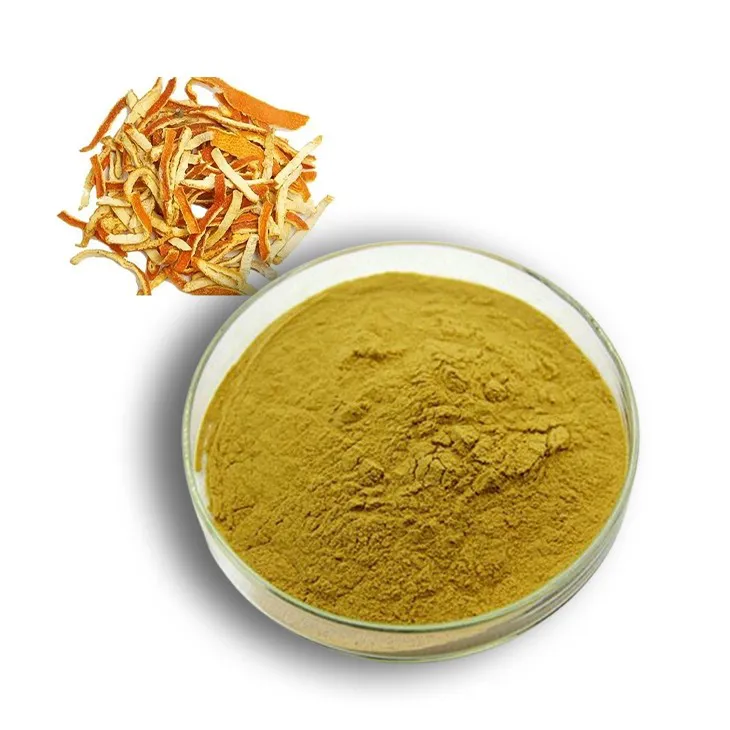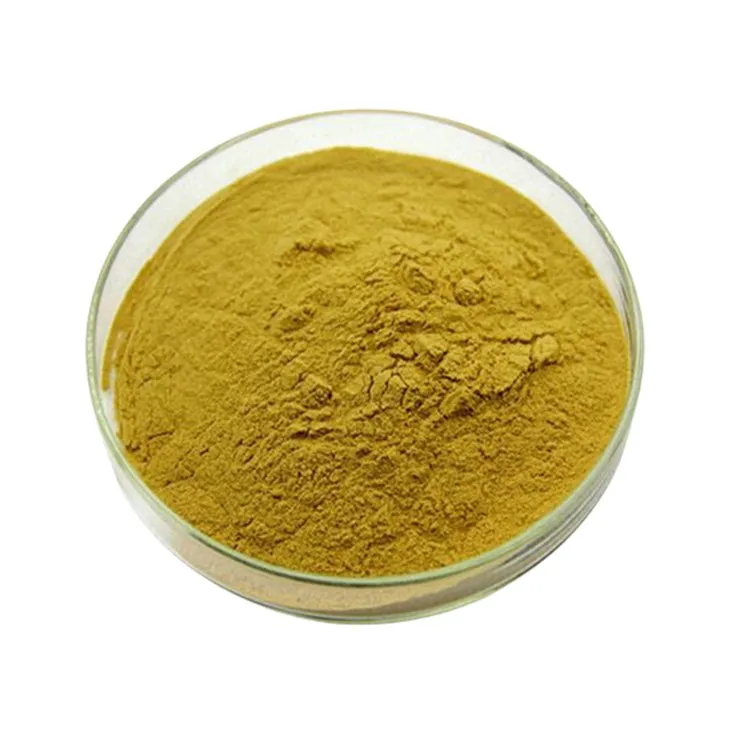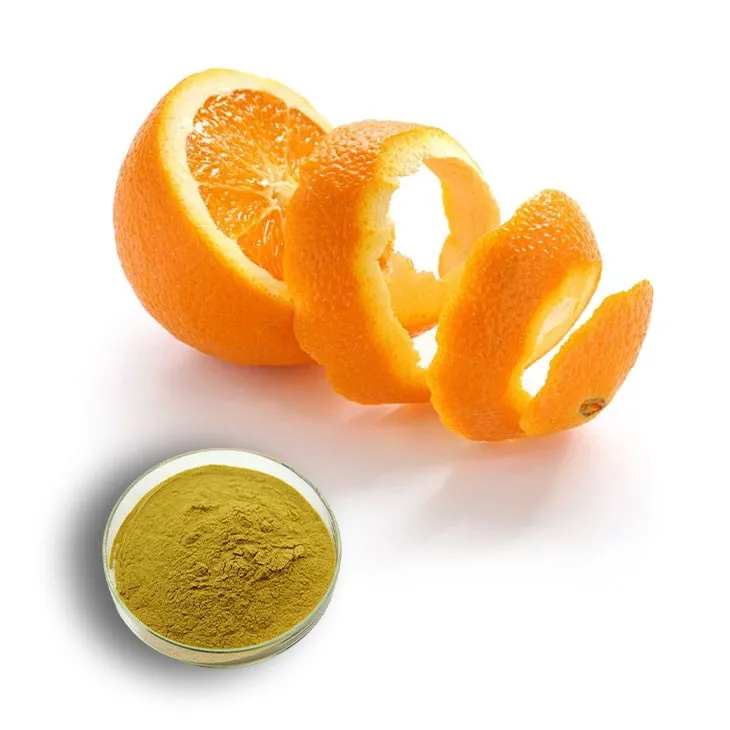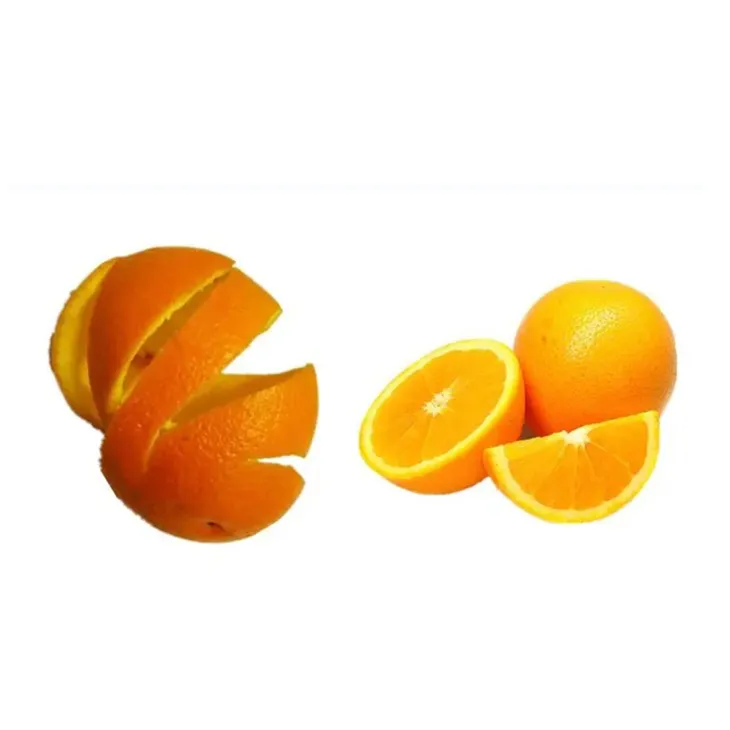- 0086-571-85302990
- sales@greenskybio.com
Does Hesperidin Effectively Thin the Blood?
2025-08-24

Hesperidin, a flavonoid found predominantly in citrus fruits like oranges and lemons, has become a topic of interest in nutritional and medical research due to its wide array of potential health benefits. One area that has sparked considerable debate is whether Hesperidin has the ability to thin the blood, a term commonly understood to mean reducing blood clot formation. As cardiovascular disease remains a leading cause of global mortality, understanding any substance that might influence blood coagulation is of significant importance. This article aims to explore the scientific evidence and current understanding of Hesperidin’s effects on blood thinning and cardiovascular health.
Understanding Hesperidin
Hesperidin is a bioactive compound that has been extensively studied for its antioxidant, anti-inflammatory, and vascular health benefits. Found in high concentrations in the peels of citrus fruits, hesperidin is often consumed through the diet or as a dietary supplement. Once ingested, hesperidin is converted into its active form, hesperetin, in the body. This metabolite is responsible for many of the biological activities associated with hesperidin.

The Role of Hesperidin in Cardiovascular Health
1. Antioxidant Properties
Hesperidin exhibits strong antioxidant properties, helping to neutralize free radicals and reduce oxidative stress. Oxidative stress can damage cell membranes, proteins, and DNA, contributing to the development of cardiovascular diseases (CVD). By mitigating oxidative damage, hesperidin contributes to better vascular health.
2. Anti-inflammatory Effects
Chronic inflammation plays a crucial role in the progression of atherosclerosis and other forms of heart disease. Hesperidin has been shown to exert anti-inflammatory effects by inhibiting the expression of inflammatory cytokines and reducing the activity of enzymes responsible for inflammation. This helps in lowering the risk of developing CVD.
3. Endothelial Function
The endothelium, the inner lining of blood vessels, plays a vital role in maintaining vascular homeostasis. Hesperidin enhances endothelial function by promoting nitric oxide production, a molecule that helps in vasodilation and improved blood flow. By supporting endothelial health, hesperidin may indirectly contribute to cardiovascular protection.

Hesperidin and Blood Thinning: The Evidence
The idea that hesperidin might thin the blood originates from its various effects on cardiovascular health. However, the specific question is whether hesperidin can function as an anticoagulant, akin to medications like aspirin or warfarin.
1. Platelet Aggregation
Blood clotting involves the aggregation of platelets, which clump together to form a clot. Some studies suggest that hesperidin might inhibit platelet aggregation, which could theoretically reduce clot formation. For example, in vitro studies (those conducted outside a living organism) have demonstrated that hesperidin and its metabolite hesperetin can inhibit platelet aggregation. However, these effects are relatively mild and not comparable to established anticoagulants.
2. Clinical Trials and Human Studies
There is a scarcity of large-scale clinical trials directly investigating hesperidin's effect on blood coagulation in humans. Some studies that focus on overall cardiovascular health suggest possible benefits, including reduced blood pressure and improved lipid profiles. However, these studies do not provide definitive evidence that hesperidin acts as a significant blood thinner.
3. Comparison to Pharmaceutical Anticoagulants
Unlike pharmaceutical blood thinners that act by directly interfering with the blood clotting cascade, hesperidin does not appear to have a direct anticoagulant effect. Pharmaceutical anticoagulants are designed to target specific pathways in the coagulation process, preventing clot formation effectively. Hesperidin’s potential effects on platelet aggregation and endothelial function are indirect and do not equate to the potency of these medications.

Safety and Considerations
When considering the use of hesperidin, particularly for its potential impact on blood thinning, several safety considerations should be taken into account:
1. Interactions with Medications
If taken with prescribed anticoagulant medications such as warfarin or aspirin, hesperidin could potentially alter their effectiveness. This makes it crucial for individuals on these medications to consult healthcare providers before adding hesperidin supplements to their regimen.
2. Dosage and Supplementation
While hesperidin is available in supplement form, it is most commonly consumed through diet. The appropriate dosage for blood thinning purposes is not well-established, and most studies suggest that dietary intake through citrus fruits is beneficial for general health.
3. Potential Side Effects
Generally, hesperidin is considered safe when consumed as part of a balanced diet including citrus fruits. However, high doses of hesperidin supplements might cause side effects such as digestive discomfort. Furthermore, individuals with citrus allergies should exercise caution.

Conclusion
While hesperidin offers a range of health benefits, particularly concerning cardiovascular health, the current evidence does not support its classification as a blood thinner equivalent to standard pharmaceutical anticoagulants. Its potential to inhibit platelet aggregation and improve endothelial function indicates some influence on cardiovascular health, but this is not sufficient to recommend its use as a standalone treatment for blood thinning.
As with any supplement or dietary change aimed at influencing health outcomes, it is important for individuals to seek guidance from healthcare professionals, particularly when dealing with conditions like cardiovascular diseases or when taking anticoagulant medications. Hesperidin should be viewed as a beneficial component of a diet rich in fruits and vegetables, contributing to overall health and wellness rather than a direct substitute for prescribed blood-thinning treatments. Ongoing research may continue to elucidate its role, but for now, its primary utility remains in enhancing overall vascular health rather than specifically preventing blood clots.
- ▶ Hesperidin
- ▶ citrus bioflavonoids
- ▶ plant extract
- ▶ lycopene
- ▶ Diosmin
- ▶ Grape seed extract
- ▶ Sea buckthorn Juice Powder
- ▶ Beetroot powder
- ▶ Hops Extract
- ▶ Artichoke Extract
- ▶ Reishi mushroom extract
- ▶ Astaxanthin
- ▶ Green Tea Extract
- ▶ Curcumin Extract
- ▶ Horse Chestnut Extract
- ▶ Other Problems
- ▶ Boswellia Serrata Extract
- ▶ Resveratrol Extract
- ▶ Marigold Extract
- ▶ Grape Leaf Extract
- ▶ blog3
- ▶ Aminolevulinic acid
- ▶ Cranberry Extract
- ▶ Red Yeast Rice
- ▶ Red Wine Extract
-
Marigold Extract
2025-08-24
-
Bayberry Extract
2025-08-24
-
Fig Extract
2025-08-24
-
Hesperidin
2025-08-24
-
Sea buckthorn Juice Powder
2025-08-24
-
Europen Bilberry Extract
2025-08-24
-
Oyster Mushroom Extract Powder
2025-08-24
-
Moringa powder
2025-08-24
-
Lavender Extract
2025-08-24
-
Almond Extract Powder
2025-08-24




















